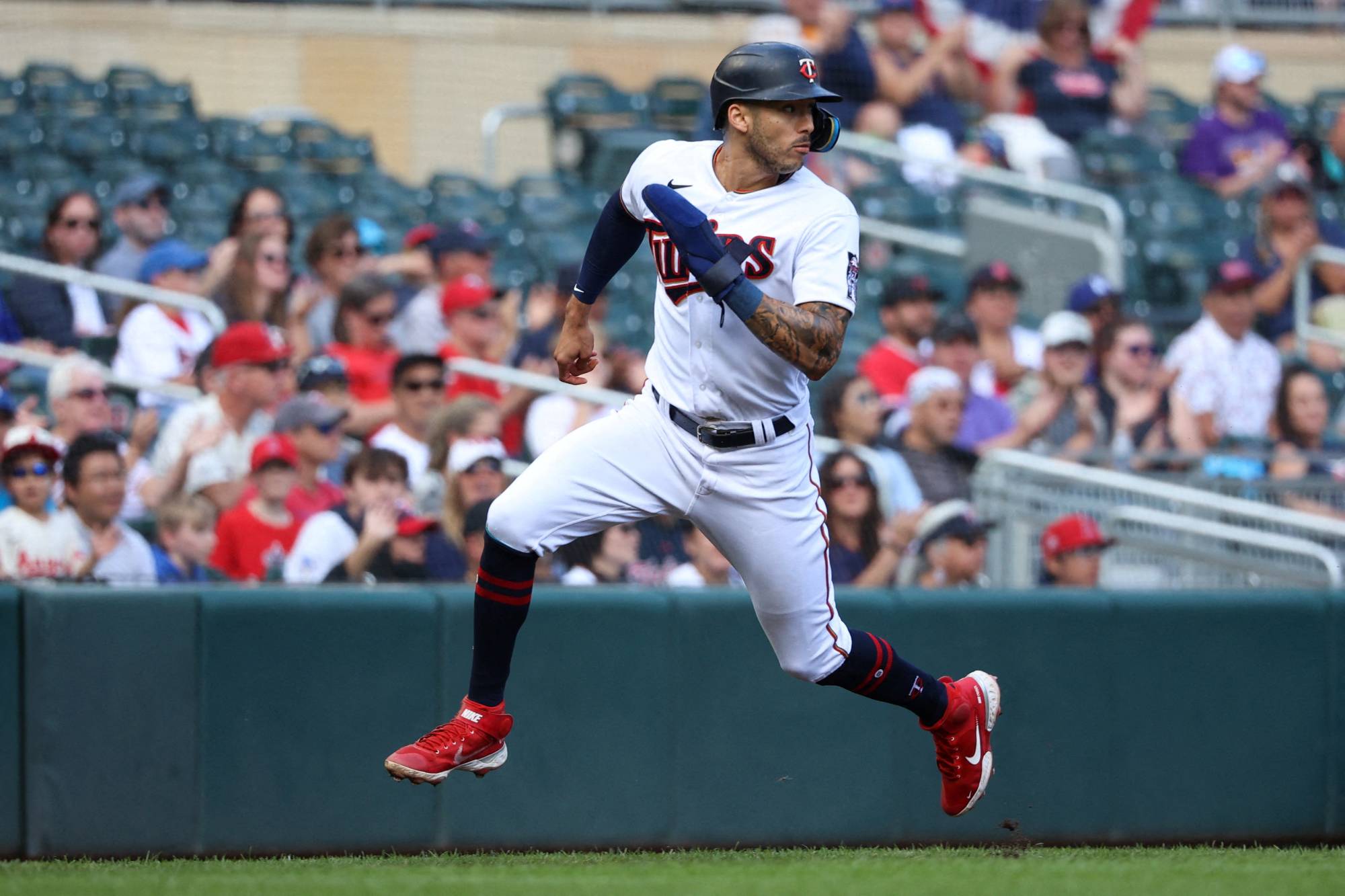Correa’s Odyssey
0By Scott MacLean
Regular readers will know that I’m a big baseball fan, especially of my beloved Boston Red Sox, but also of the game as a whole.
But in my 25+ years of dedicated following, I’ve never seen anything quite like the offseason odyssey of Carlos Correa.
Correa is one of the game’s superstars, the modern prototype tall, five-tool shortstop who can hit for average, power, field, throw, and run at a high level, and one seemingly tagged for the upper echelons of the game when the Houston Astros took the-then 18 year-old Puerto Rican with the first pick of the 2012 Draft. Debuting in the majors in 2015, he was part of the Astros core – along with outfielder George Springer and fellow infielders Alex Bregman and Jose Altuve – that led the franchise not only back to respectability, but all the way to the sport’s summit to claim the World Series in 2017. That title, one in a current run of six consecutive postseason appearances for the club (and a second World Series this past season), is tainted by a sign-stealing scandal that still ripples today.
Correa however wasn’t part of last season’s title. Having failed to come to terms with the Astros on an extension, he entered free agency. With the anticipated long-term massive payday failing to materialise, he and his representative, baseball uber-agent Scott Boras, took a three-year, $105 million deal with the Minnesota Twins that contained a provision that allowed him to opt-out after a season; if he played well and stayed healthy he could go looking for that motherlode this time around, or have a very healthy backstop if he didn’t. Scenario One happened.
One of four star shortstops in free agency this time around, along with Los Angeles’ Trea Turner, Boston’s Xander Bogaerts, and Atlanta’s Dansby Swanson, Correa watched as the first two signed massive deals with Philadelphia and San Diego respectively. But after missing out on prying local kid Aaron Judge away from the New York Yankees, the San Francisco Giants inked Correa to a 13-year, $350 million contract. It all seemed set.
And then it wasn’t. The press conference to formally introduce him in the Bay Area was cancelled just hours before it was to take place, and soon thereafter rumours began to leak that the Giants had found something in his physical exam that made them pause for thought. And while the two sides were negotiating further, Boras pivoted and worked out a 12-year, $315 million deal with the big-spending New York Mets; a team that already had a $300m shortstop in Correa’s Puerto Rican teammate Francisco Lindor.
It was a stunning development, something akin to Erling Haaland joining Manchester City.
But again, the physical proved the stumbling block. The issue seemingly related back to a broken leg Correa suffered in the minor leagues in 2014, with the belief that it could lead to back problems in the latter part of the contract, despite Correa not having had had leg or back issues in the period since. So, like the Giants, the Mets backed out, though both – along with others – continued to remain in contact.
But there was one place where Correa was a known commodity – Minnesota – and that’s where this odyssey returned to, signing a 6-year, $200 million deal that could reach as much as $270 million with incentives and vesting options.
It might not be the pot of gold he sought, but it drew a line under one of the more bizarre free-agency voyages that baseball has seen.
Follow Scott on Twitter

